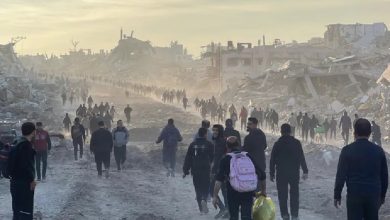Netanyahu Caught Between Trump’s Pressure and Internal Struggles Over Gaza Deal
As Trump escalates threats, Netanyahu faces mounting pressure from far-right ministers and Israeli public opinion, torn between war and completing the hostage deal with Hamas.
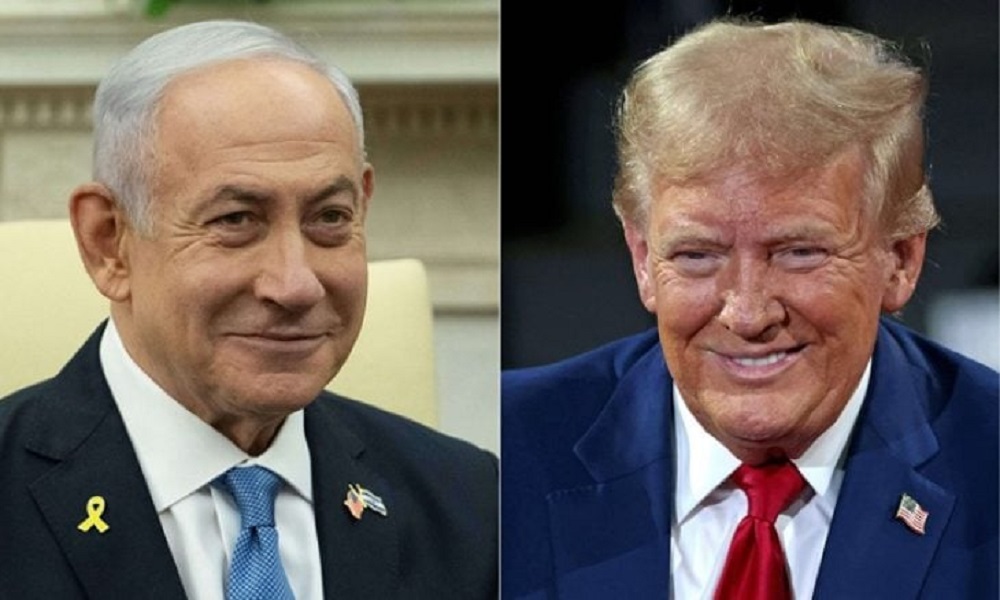
Watan-Unofficial sources in Israel warn of the potential collapse of the deal between Israel and the Islamic Resistance Movement (Hamas) and the resumption of war on Gaza. Some observers have even stated that U.S. President Trump and Israeli Prime Minister Netanyahu are “playing with fire.”
The U.S. president has reiterated his threats against Hamas and, implicitly, against Egypt and Jordan during his meeting with the Jordanian king. After a long silence and following a “cabinet” meeting, Israel issued a statement that neither fully endorsed Trump’s proposals nor provoked him. The statement emphasized the need to recover the hostages by Saturday while keeping the door open for returning to the deal and negotiations.
However, differences within the Zionist right led the Prime Minister’s Office to issue four contradictory and ambiguous unofficial statements, attributed to a “senior political source,” indicating that Trump’s escalating threats have also unsettled the Israeli side. Netanyahu found himself embarrassed by Trump outflanking him from the right, which allowed Smotrich and Ben Gvir to increase pressure on Netanyahu to implement Trump’s threats and return to war.
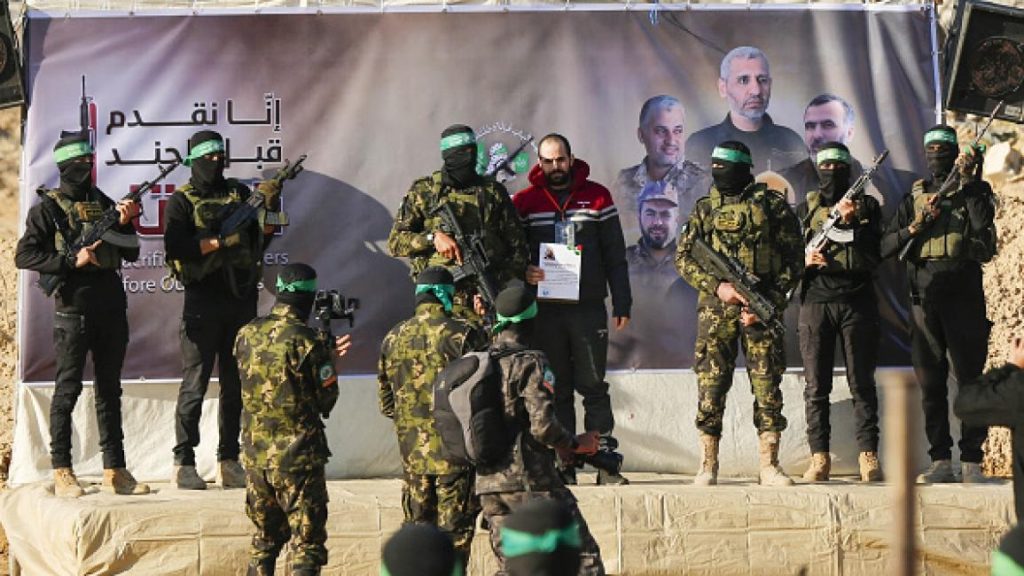
Netanyahu Balances War, Protests, and Trump’s Pressure
Netanyahu and several cabinet ministers are not eager to rush back into war, fearing a massive wave of protests in Israel, especially since three-quarters of Israelis still demand that the deal be completed first. War, as the families of the hostages stressed in a statement yesterday, would mean a death sentence for the remaining captives in Gaza.
Netanyahu also seems uncertain about Trump’s intentions and may fear that Trump’s volatile temperament could turn against him, particularly as Netanyahu has his eye on another regional political deal centered on bringing Saudi Arabia into normalization, as well as on Oslo and the Nobel Peace Prize. After the series of unofficial statements—mainly directed at the hardline Zionist right—Netanyahu released a video saying he supports Trump’s proposals but without going into details.
Keeping the Door Open
In these unofficial statements and in his video, Netanyahu adopted a strong tone and used the language of threats as part of the battle for public perception, making it appear as if his government is leading events rather than Hamas or any other party. He also sought to avoid appearing weaker than Trump and to push Hamas into lowering its demands and protests over Israel’s violations of the agreement. However, in the final analysis, he left the door open for completing the sixth phase and the remaining stages of the first phase of the deal.
Netanyahu does not prioritize the fate of the captives in Gaza as a top objective, but he senses the growing unrest in Israeli society and fears the worsening internal fragmentation. He also recognizes the potential for public anger to explode after the initial excitement over the return of some Israeli captives, particularly following the extensive Israeli campaign highlighting the deteriorating health of the three captives who were returned last Saturday.

Therefore, it is unlikely that Netanyahu will be quick to pull the trigger and resume the war, even if Hamas only returns three captives in accordance with the agreement—especially since U.S. presidential envoy Steve Witkof is on his way to Israel to salvage the deal, despite Trump’s threats last night.
Lapid vs. Smotrich
The hardline settler minister Bezalel Smotrich, who advocates for resolving the conflict with the Palestinians through brute force, directly called on Netanyahu yesterday to tell Hamas unequivocally that if all the hostages are not returned by Saturday, the deal’s phased release system will end, and the “games” will be over. He demanded war, fire, and brimstone on Gaza, along with cutting off its food supply and expelling its residents.
In contrast, opposition leader Yair Lapid told Israeli public radio that he supports scrapping the phased-release system and recovering all hostages at once in exchange for ending the war. Responding to Smotrich’s call for war, Lapid said Smotrich is not interested in bringing back the hostages but rather in having the military issue death notices for soldiers. He added: “I support eliminating Hamas, but we must first recover the hostages. We will have plenty of reasons to act afterward. The priority now is to retrieve the hostages. I don’t see any Israeli interest in letting our captives die in Gaza’s tunnels.”

For his part, former head of the Military Intelligence Prisoners and Missing Persons Division, Avi Kadush, warned in an interview with Israeli public radio that Trump’s reckless initiatives could derail the hostage recovery process. He explained: “Trump’s erratic temperament and personal whims are already putting this fragile process under strain. He is shifting from being the initiator of this process to a destabilizing force that could cause its collapse.”
The Israeli news site Ynet quoted a well-informed source as saying that these anonymous leaks and messages coming from Netanyahu are harming the fragile process and are being driven by pressure from the right.
Netanyahu Walking a Tightrope
This is further confirmed by Ynet’s military analyst Ron Ben-Yishai, who highlights the internal and external pressures on Netanyahu. In his analysis published Wednesday morning, he writes: “Everyone can choose who to believe—Netanyahu’s own statements or the messages attributed to him.” He argues that the cabinet’s decision was the only logical one, as it prevents rash actions and avoids placing Israel in an undesirable position later.
Ben-Yishai notes that Netanyahu is carefully navigating between the different pressures: he has not officially endorsed Trump’s proposal, yet he has also avoided angering him. He adds: “However, after this cautious stance, the hardline right (Smotrich and Ben Gvir) entered the fray, prompting a series of increasingly hardline unofficial statements from the Prime Minister’s Office, issued in the form of messages from a ‘senior political source’ and an ‘Israeli source.'”
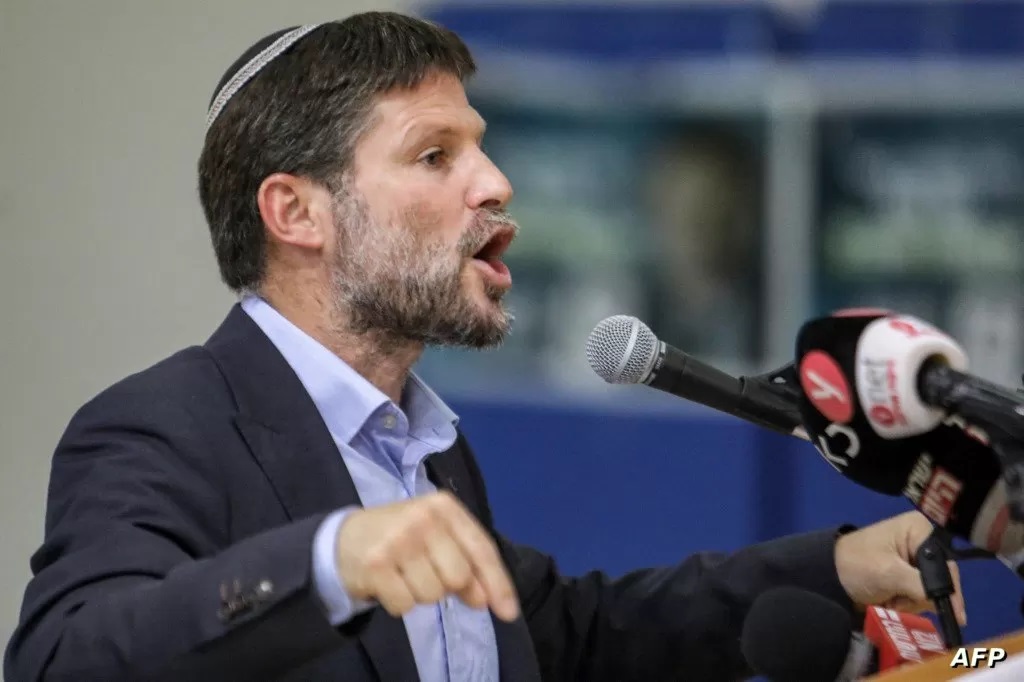
Possible Resolution of the Crisis
Ben-Yishai believes that Trump’s escalating threats have also unsettled Netanyahu, who cannot afford to appear “less hawkish than Trump” and fears that the U.S. president could turn against him.
He adds: “Security officials and ministers know that if Israel launches a military campaign against Gaza, at least some of the hostages will be harmed. At the same time, Hamas is also interested in preserving the gains of the deal, so it is possible that the crisis will be resolved before Saturday.”
Haaretz military analyst Amos Harel takes an even graver view of the unfolding drama and Israel’s preparations for a possible resumption of war, warning that “Trump and Netanyahu are playing with fire.” He notes that while the situation remains highly volatile and dynamic, one thing is clear: “Continuing the war could result in the deaths of dozens of hostages, soldiers, and Gaza civilians.”
The Israeli news site Walla quoted sources saying that the head of Shin Bet advised ministers to give mediators a chance to resolve the crisis with Hamas. It also cited an “Israeli source” warning that failing to complete the deal by Saturday would be a dangerous scenario, expressing hope that mediators would succeed in saving it.
No Alternative to Negotiations
Former head of the political-security division in the Ministry of Defense, retired General Amos Gilad, stresses that Israel abandoned the hostages on October 7 and is morally, politically, and militarily obligated to recover them alive.
Gilad agrees with Lapid and others that the priority must be to retrieve the captives first and deal with Hamas’ fate later. He explains: “The images of the Israeli captives returning from Deir al-Balah last Saturday prove this. They should be recovered through negotiations now, and later, a strategy can be formulated to deal with Hamas decisively. Renewing the fighting under the current circumstances threatens the lives of the hostages.”
Israeli circles also fear that the situation could destabilize Jordan and Egypt, jeopardize normalization prospects with Saudi Arabia, and endanger the Israeli captives, as noted by Haaretz’s Middle East affairs editor, Zvi Bar’el.
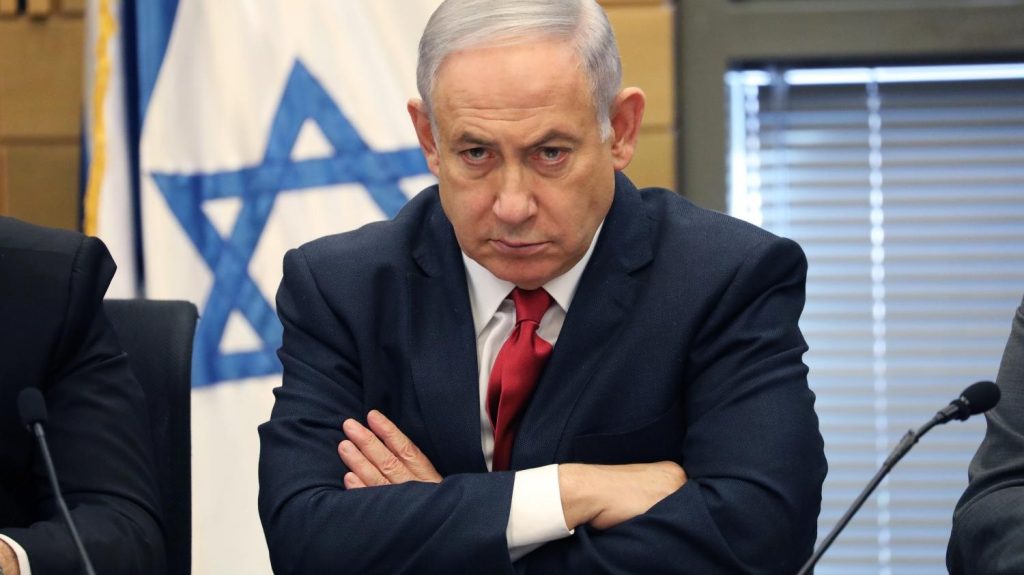
Despite Trump’s escalating threats—which align with some Israelis’ desires to expel Gazans—there are growing domestic pressures in Israel to complete the deal. These pressures have intensified, especially as the families of the hostages accuse Netanyahu of trying to evade the second phase of the deal, exploiting Trump’s statements that sow confusion and reflect his businessman’s mindset—one that uses intimidation and shock tactics to push parties toward agreement, as described in his 1980 book The Art of the Deal.
This may prompt Hamas to adopt a “lesser of two evils” approach, refraining from halting the prisoner exchange despite Israel’s violations, in order to complete the sixth phase on Saturday and deny its opponents the chance to undermine the deal.






